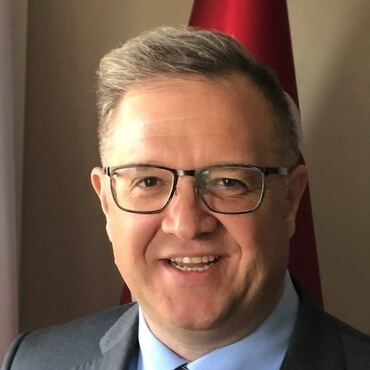Investigators
The T-MARS research team is composed of three scientists with complementary expertise (remote sensing, geology and astrobiology). A collaborator from the chemical industry is also involved and is responsible for training on LIBS (Laser-Induced Breakdown Spectroscopy) instrumentation.
The students will thus be trained in a multidisciplinary team of the highest quality. The researchers all have considerable experience in different aspects of Earth and planetary sciences. They range from early career to senior researchers and evolve in four different Canadian institutions.
Principal inversigator
Myriam Lemelin, Ph.D.
Our remote sensing specialist
Canada Research Chair in Northern and Planetary Geological Remote Sensing
Professor, Department of Applied Geomatics
Université de Sherbrooke
I am a professor of applied geomatics at the Université de Sherbrooke and holder of the Canada Research Chair in Northern and Planetary Geological Remote Sensing. My research focuses on remote sensing of the geology, ice and soil properties of the Moon, asteroids and Mars in preparation for future space exploration missions. I am also interested in the geology and soil properties of the Canadian Arctic as Mars analogue region. I am a scientific collaborator for the laser altimeter onboard the OSIRIS-REx mission and a member of the scientific team at the Center for Lunar Science and Exploration (CLSE) of the Solar System Exploration Research Virtual Institute (NASA SSERVI). In my research, I aim to advance knowledge about the evolution of our solar system and to stimulate students' interest in space exploration.
I am the Principal Investigator of the T-MARS mission. In this role, I am responsible for project management and supervision of research work focused on the use of geospatial and remotely sensed data. I am also responsible for disseminating the overall results of the project.
Myriam is a member of the 2023 field team.
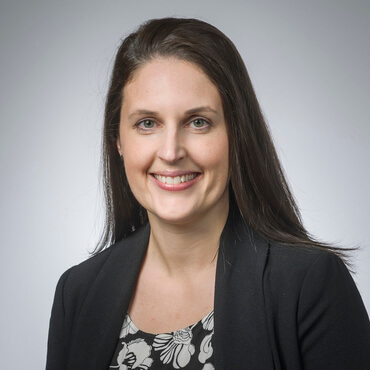
Co-Investigators
Marie-Claude Williamson, Ph.D.
Our geology specialist
I am a researcher with the Geological Survey of Canada, Natural Resources Canada, specialized in the study of volcanic rocks. Most of my career has been focused on the search for mineral resources in the Canadian Arctic Islands. All my projects have benefited from the contribution (individually and collectively) of members of a multidisciplinary team, remote geological expeditions and laboratory work. I have a passion for the natural sciences and the challenges associated with communicating complex scientific results to the general public.
The study of gossans requires a multidisciplinary approach: remote sensing, field missions, sampling, mineralogy, geochemistry and biology. My contribution to the T-MARS project involves field missions, geological mapping and geochemistry of gossans and associated hydrothermal systems. I co-supervise the projects of Stéphanie Lachance, Éloïse Brassard and Benoît DesRochers.
Marie-Claude is a member of the 2022 field team.
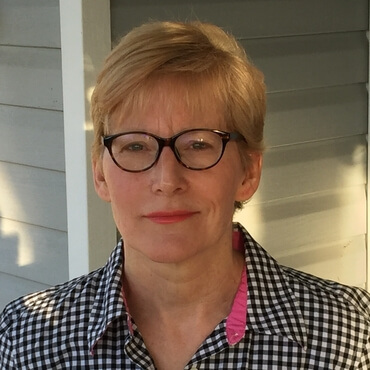
Richard Léveillé, Ph.D.
Our astrobiology specialist
Adjunct professor, Department of Earth and Planetary Sciences
McGill University
Member, McGill Space Institute
Dr. Léveillé is a planetary scientist and astrobiologist whose current research focuses on geochemistry, mineralogy, biosignatures and the preparation of future astrobiology missions to Mars and Europa by conducting research in analog environments on Earth. He is particularly interested in mafic rock alteration and alteration minerals on Mars as indicators of past environmental conditions and habitability.
François Léveillé is currently a participating scientist at NASA's Mars Science Laboratory and has worked closely with the ChemCam team (the first planetary LIBS instrument) on the Curiosity rover, which has been on Mars since 2012. He is also a collaborator of the Franco-American team that is developing the SuperCam instrument for the Perseverance rover of NASA's Mars 2020 mission, which left Earth in 2020. He has worked extensively in environments analogous to Mars, from deep-water hydrothermal events to Arctic sedimentary deposits.
Richard is a member of the 2023 field team.
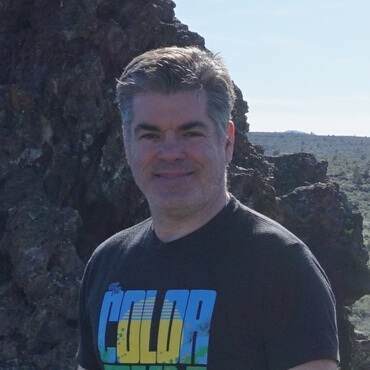
Collaborators
Cassandra Marion, Ph.D.
Our outreach specialist
A life-long explorer, Cassandra completed her PhD in geology and planetary science and exploration from the Institute for Earth and Space Exploration at Western University where she studied meteorite impact craters in the Canadian Arctic. She has considerable experience with simulated robotic and human missions designed to learn, train and prepare for real missions to the Moon and Mars. In her current role as Science Advisor for the Canada Aviation and Space Museum in Ottawa, Cassandra is dedicated to sharing her passion and knowledge of Earth and planetary science with communities near and far.
Cassandra is a member of the 2022 and 2023 field teams.
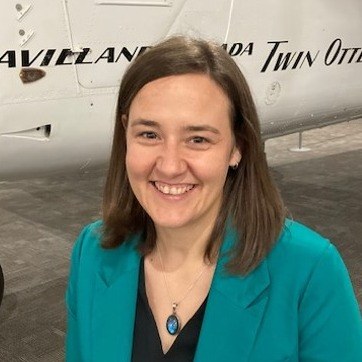
Levin Castillo-Guimond, géo. M. Sc. A.
Our hyperspectral specialist
I'm a researcher at the Centre de géomatique du Québec (CGQ) and a geologist specialized in the study of Archean and modern volcanic rocks and structures. Before devoting myself to research in geomatics, I took part in defining the Misema megacaldera complex in Abitibi (Qc) with researchers from the Université du Québec à Chicoutimi. My career also gave me the opportunity to collaborate with the multidisciplinary team at the Monterey Bay Aquarium Research Institute on an expedition to study lava flows from the Juan-de-Fuca and Gorda ocean ridges, as well as the caldera of the Axial submarine volcano. Subsequently, I worked in mineral exploration in northern Quebec and in the Mexican desert.
At the QGC, my research projects focus mainly on the use of remote sensing and photogrammetry to meet various needs in geology, forestry and environment. My professional experience has led me to take a particular interest in airborne hyperspectral remote sensing as a tool to aid mineral exploration at regional and local scales. As part of the T-MARS project, my contribution concerns the 2023 field mission, where I am testing hyperspectral remote sensing as a support for mapping gossans. I am also working with the team on the identification and interpretation of geological formations.
Levin is a member of the 2023 field team.
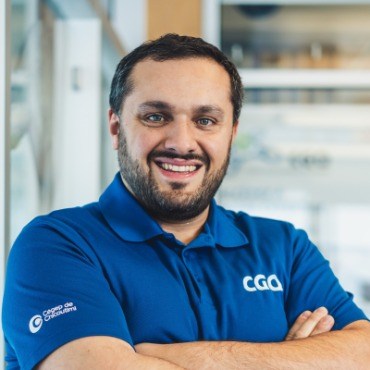
Sean Clark
Our logistics and educational content specialist
I am a high school science teacher, who is passionate about geology and planetary studies. I enjoy camping, wilderness adventuring, and exploring beautiful places. About 10 years ago, during a previous scientific expedition to the Arctic, this led me to make contact with one of the current members of the T-MARS team. I was then asked to accompany the T-MARS team on its field mission in 2022 in a logistical support role.
My main role leading up to the 2022 expedition was preparing equipment and food for the mission. On site, I supported each of the researchers in various aspects of their project, helping in the gathering of samples, recording of data and acquiring photos and videos of various aspects of the research. While in the arctic, I conducted similar experiments and demonstrations to those of the team and other researchers we connected with using probes designed for high school labs. My goal was to document these experiments alongside those of Arctic researchers in order for my students to later perform analogue research of the analogue planetary research being conducted in the high arctic.
As a high school teacher, my focus in the months following the 2022 expedition was to prepare bios of various members of the T-MARS team, along with other researchers that we encountered both in Resolute and at the M.A.R.S. Station. I have also designed several classroom activities, and have prepared workshops to share these with teachers from across Ontario.
Sean is a member of the 2022 field team.
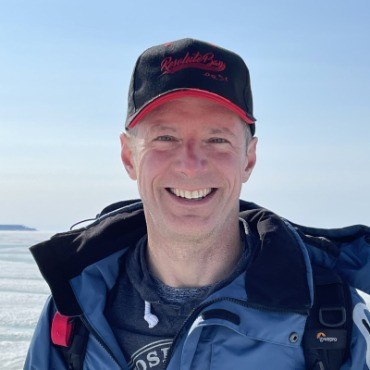
François Doucet, Ph.D.
Our chemistry specialist
Dr. Doucet obtained his doctorate and master's degree in analytical chemistry at the Université de Montréal under the supervision of Joseph Hubert. He has 20 years of expertise in the development and design of LIBS instruments for various applications. He excels in atomic emission, laser ablation, spectroscopy, chemometrics, machine learning, nuclear forensic chemistry and process chemistry. He has co-authored more than 20 refereed publications and has given more than 130 refereed presentations at international conferences. He is also co-inventor of several patents currently in exploitation. François Doucet is CEO and co-founder of ELEMISSION and President of the North American Society for Laser-Induced Breakdown Spectroscopy (NASLIBS).
